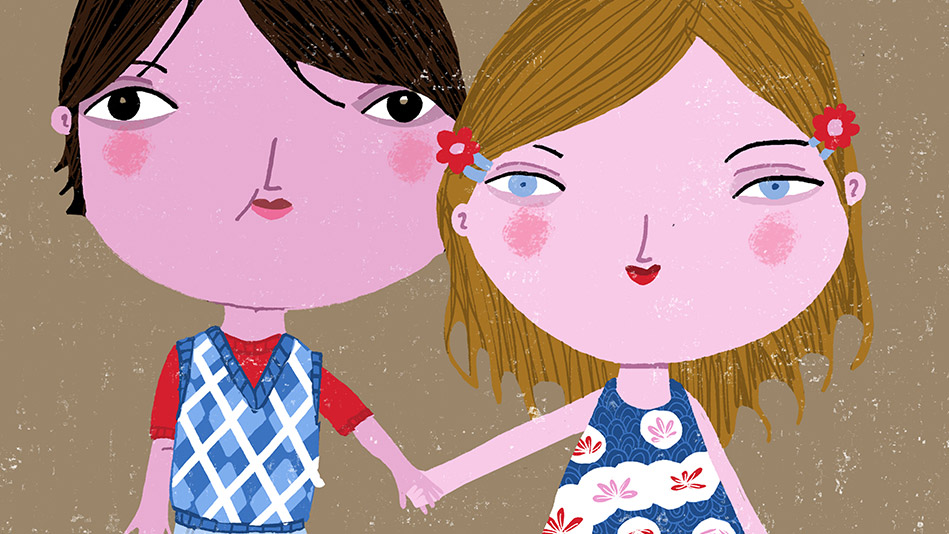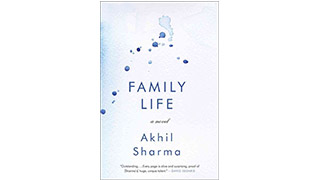7 Ways to Make a Man Fall in Love With You
The author of Family Life: A Novel shares the secrets all women wish they knew...

Photo: Luciano Lozano/ Getty Images
1. Say something nice about someone people expect you to speak ill of.
As soon as we met, I knew that my future wife was nothing like me. She was nine years older than I was and almost 6 inches taller. She was blonde and blue-eyed, which to me, as an Indian, was not immediately attractive. (Blonde suggests malnutrition, since the hair of starving children turns straw-colored; blue eyes seem eerie and alien.) I say all this because, though my wife is conventionally beautiful, her looks did not play a large part in my falling in love with her. I was more interested in her attitude about a woman who had bad-mouthed her as a way to get a promotion.
Lisa, instead of saying something angry, talked about what a good mother this woman was. Her generosity made me think: This is a person who will be kind, not just with me but with others.
2. Ask a boring question.
As we were walking through a park on a date, my future wife said, "Tell me something boring about you." I felt enormous relief when she said this. It made me feel that she wanted to know me, not just the public face that I put on. I told her about how, when I was a child, my parents used to put me to bed early and, as I would lie there unable to sleep, I would hear the children on the street who were allowed to remain outdoors and felt that life was elsewhere.
My wife still asks me things like what I had for lunch or whether the coffeemaker at work has been replaced. This makes me feel known. We are as much the minor details of our lives, and our responses to these details, as we are grand spiritual things.
3. Talk about work.
When I met her, Lisa used to work for Planned Parenthood. She would tell me about her job, about the clinics she supervised, about the schools that she visited and when I tried to imagine her doing these things, the idea of her competency made her appear mysterious and strong. There was also something comforting about knowing that she could take care of herself, that she was not somebody who would be dependent on me. For us ordinary human beings to fall in love, we need the right ratio of dependence to independence in the other person.
4. Grab the man's hand and pull him somewhere.
At the beginning of our relationship, my wife saw a cop approaching the car she had parked illegally. She grabbed my hand and ran to get to the car before the cop did. She could have run ahead without me, but her grabbing my hand and pulling me meant that she could not bear to be apart from me. For days afterward, I remembered how tightly she had held my hand.
Even now, she periodically grabs my hand and starts tugging me forward, through train stations, across stores; and when she does this, I become aware of how essential I am to her.
5. Try to have at least some dates during the daytime.
The early part of a relationship is so confusing and intense that it is outside of ordinary life. Going out on dates only at night adds to this feeling. At its worst, this disengagement from the ordinary can make the relationship feel imaginary and like something for which you are not responsible.
My now-wife often had us meet during the day. By meeting during the day, our relationship existed during the hours that I lived most of my life. It caused the relationship to become part of my everyday life. Having her be part of my daylight hours caused the relationship to set down roots.
6. Volunteer together.
Lisa had volunteered to clean a park one weekend and asked me to join. Going with her one Saturday morning to a park on the Lower East Side of Manhattan and picking up litter together made us talk about certain things which don't come up early in a relationship: what is our moral responsibility toward the world, what is the moral stance with which we should approach the world? This helped me see that I admired Lisa and that, though I am much more cynical than she, I wanted to be a bit like her.
7. Ask him to cook something for you.
Food is a way into our past. When I toast an English muffin, the muffin is not just itself, but also part of the TV ads that I saw as a child and the first apartment my family lived in when we came to America. When Lisa asked me to cook her dinner, the khicrdi, a type of gruel, I made had so many memories of my past attached to it that it was a physical way of taking Lisa into my childhood. Twenty years after I did this, Lisa still talks about it. Often, we want to reveal ourselves but we don't know how. Preparing food for each other is a way of taking the person into our past. Love requires care. It requires an eagerness to find the romance in the humdrum. The only way to do this is to constantly share our humanity, to constantly say that this right now is pretty fantastic.
 Akhil Sharma is the author of the new novel Family Life: A Novel and An Obedient Father.
Akhil Sharma is the author of the new novel Family Life: A Novel and An Obedient Father.



